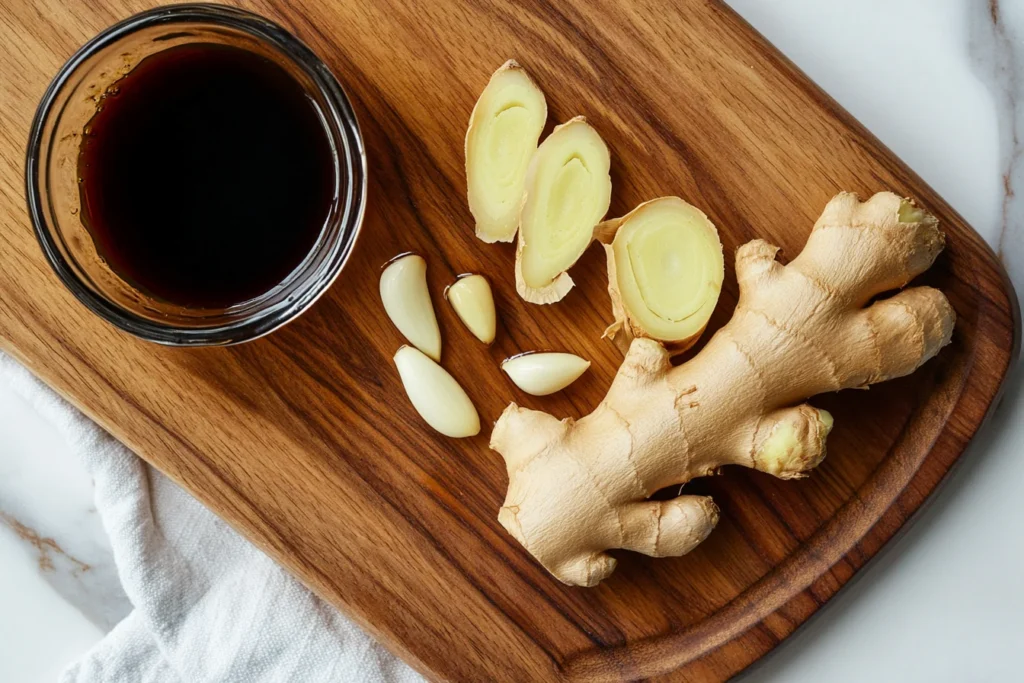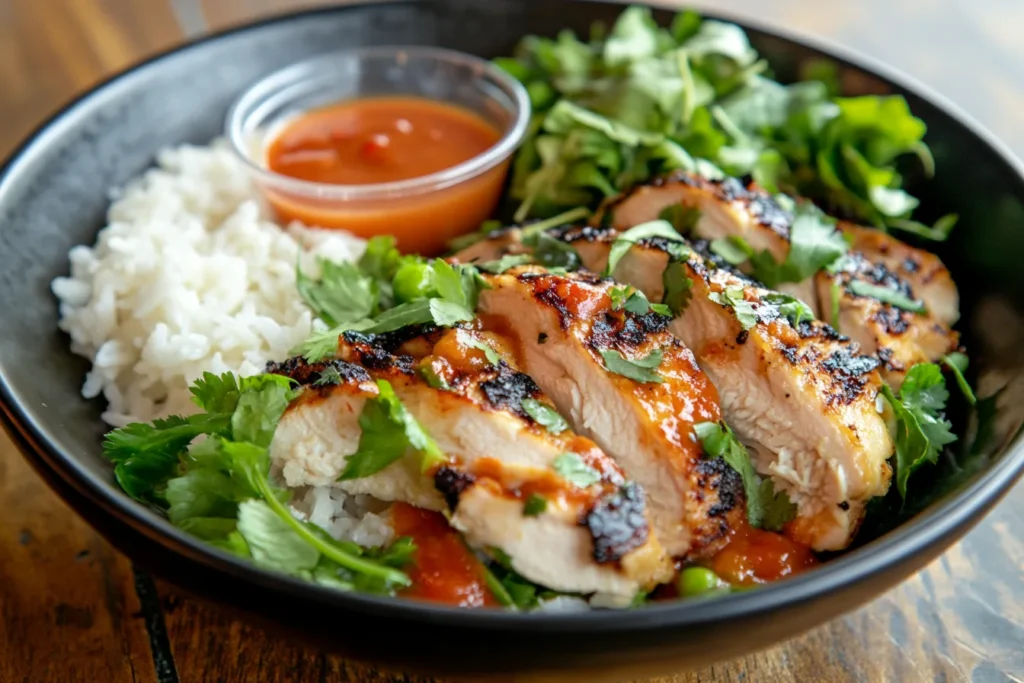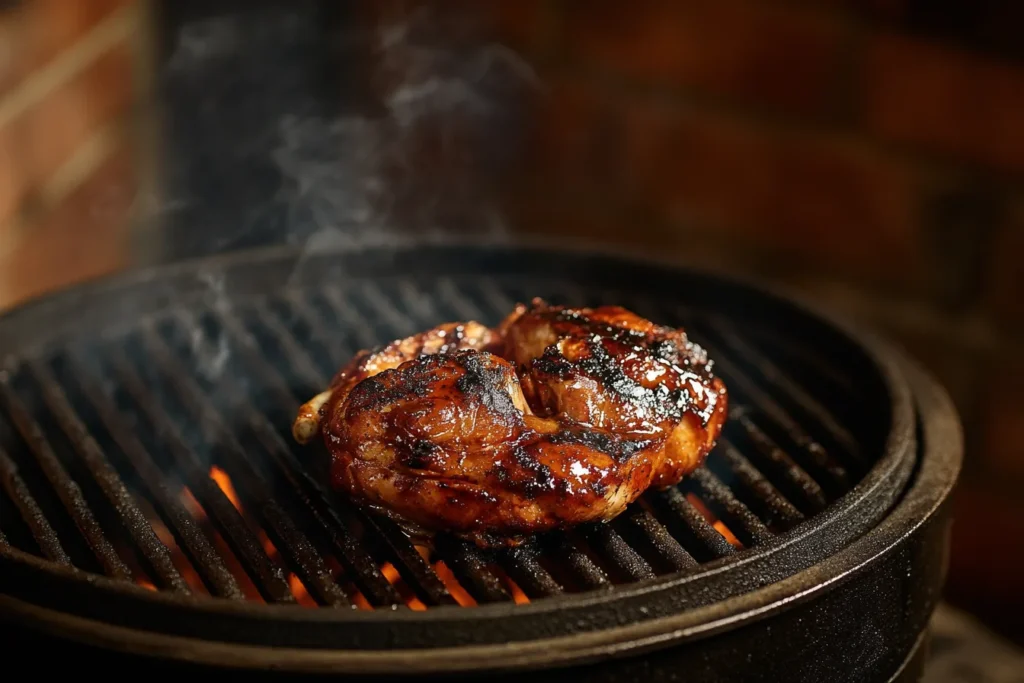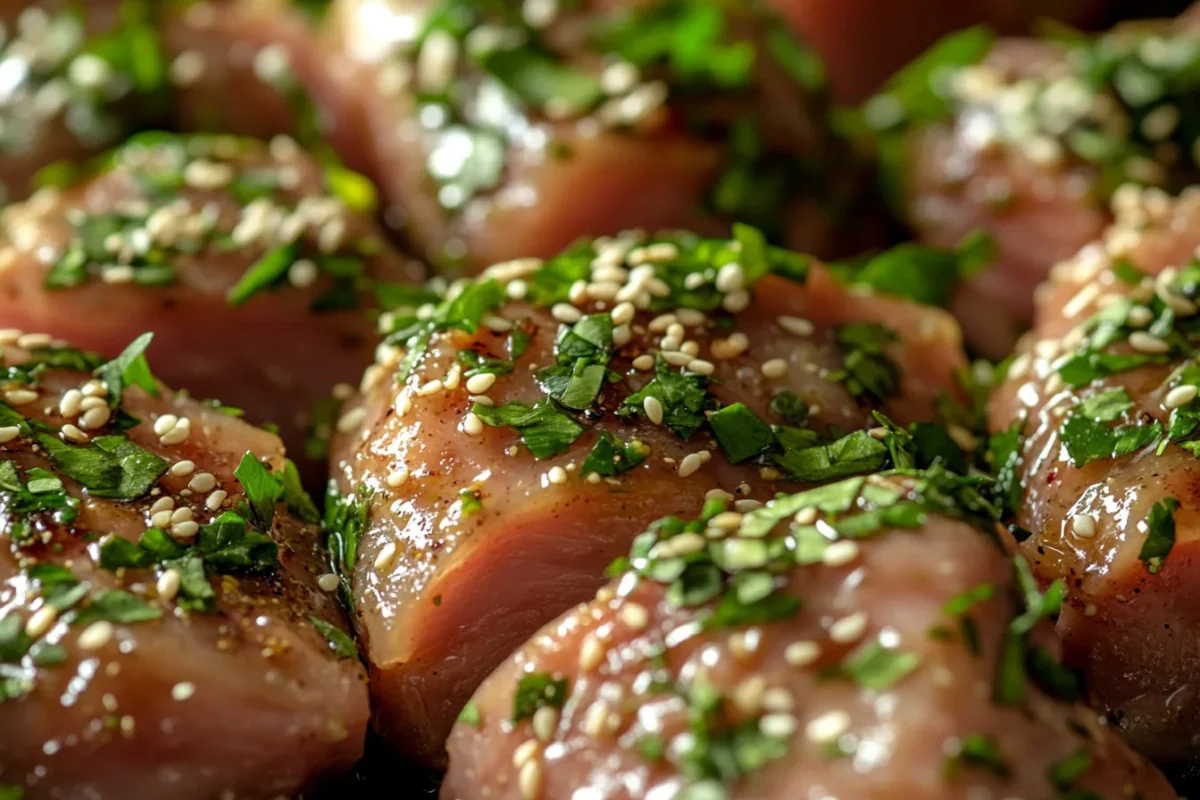Asian Chicken Marinade: Unlocking the Secrets of Flavorful Cooking
Creating the perfect Asian chicken marinade involves more than just tossing a few ingredients together; it’s about capturing a harmonious balance of sweet, savory, spicy, and tangy flavors. Whether you’re a seasoned cook or just starting, learning the nuances of marinades can transform your dishes. In this article, we’ll explore the history, essential components, techniques, recipes, and FAQs about this culinary delight. By the end, you’ll have everything you need to create irresistible marinades that leave everyone asking for seconds.
Introduction to Asian Chicken Marinades
Asian chicken marinades are a cornerstone of many traditional cuisines across the continent. They’re not just about adding flavor to chicken; they’re about enhancing texture, aroma, and even how the chicken cooks. With a careful blend of ingredients like soy sauce, ginger, and sesame oil, you can elevate even the simplest chicken dish to gourmet status.
Marinades help tenderize chicken by breaking down proteins while infusing the meat with flavors that suit a range of cooking methods, from grilling to stir-frying. The use of marinades spans generations, making them an integral part of culinary traditions in countries like China, Thailand, Korea, and Japan.
Historical Background of Asian Marinades
Marinating techniques in Asian cuisine date back centuries, rooted in the practical need to preserve food and enhance its flavor. The methods evolved over time, incorporating local ingredients that vary by region.
- Chinese Influence: The use of soy sauce and rice wine became a hallmark of marinades, emphasizing umami and sweetness.
- Korean Contributions: Marinades like bulgogi sauce bring the perfect balance of spice and sweetness.
- Southeast Asian Twist: Ingredients like lemongrass, fish sauce, and tamarind add complexity and depth to marinades.
Understanding these cultural roots not only enriches your cooking but also connects you to centuries of culinary heritage.
Stay tuned as we dive into the key components that make up a fantastic Asian chicken marinade. Every ingredient has a role, and balance is the secret sauce. Let’s uncover these essentials in the next part!
Key Ingredients in Asian Marinades
Creating a stellar Asian chicken marinade begins with understanding its essential components. Each ingredient plays a vital role in developing the flavors that make your chicken dish stand out. By combining savory, sweet, tangy, and aromatic elements, you can craft a marinade that not only tenderizes the chicken but also leaves a lasting impression.

Soy Sauce: The Foundation of Flavor
Soy sauce is the backbone of many Asian marinades, offering a rich umami flavor that enhances every other ingredient.
- Light Soy Sauce: Adds saltiness and bright flavor without overpowering.
- Dark Soy Sauce: Brings a deeper color and sweetness to the dish.
Soy sauce not only seasons the chicken but also works as a tenderizing agent due to its salt content.
Oyster Sauce: Sweet and Savory Harmony
A touch of oyster sauce adds a mild sweetness and rich, savory depth. For those looking for alternatives, mushroom-based substitutes work well without sacrificing flavor.
Sesame Oil: Nutty Aromatics
Sesame oil, especially the toasted variety, introduces a nutty aroma that’s synonymous with Asian cuisine. Use it sparingly—just a drizzle can transform your marinade.
Rice Vinegar: Balancing Act
Rice vinegar balances the marinade with a subtle tanginess. It’s essential for achieving that delightful contrast between sweet and sour.
Ginger and Garlic: Aromatic Heroes
Freshly grated ginger and minced garlic are indispensable. They infuse the chicken with a warm, zesty flavor while adding complexity to the marinade.
Sweeteners: Enhancing the Palate
- Honey: Provides a natural sweetness and helps caramelize the chicken when cooked.
- Brown Sugar: A classic choice for adding depth to the marinade’s sweetness.
Spices and Herbs: A Flavorful Finish
Ingredients like chili flakes, lemongrass, and cilantro add bold notes and unique aromas. Adjust these based on your spice tolerance and desired complexity.
Balancing Flavors: The Five Tastes
An authentic Asian chicken marinade strikes a balance among the five fundamental tastes: sweet, sour, salty, bitter, and umami.
- Sweetness: Comes from honey, sugar, or sweet soy sauce.
- Sourness: Vinegars or citrus juices cut through the richness.
- Saltiness: Anchored by soy sauce or fish sauce.
- Bitterness: Herbs like cilantro can introduce a touch of bitterness.
- Umami: Amplified by soy sauce, miso, or oyster sauce.
Perfecting this balance requires experimentation, but when done right, it can elevate your marinade to a work of art.
In the next part, we’ll explore how to choose the right chicken cuts and master the art of marinating techniques for maximum flavor infusion. Stay tuned!
Selecting the Right Cut of Chicken
When preparing an Asian chicken marinade, the choice of chicken cut plays a pivotal role in the final outcome. The texture, flavor absorption, and cooking method all hinge on this decision. Let’s break down the options to help you choose the best cut for your marinade.
Breasts vs. Thighs: Which is Better?
- Chicken Breasts: Lean and versatile, chicken breasts are a popular choice. However, they can dry out easily, so shorter marinating times and proper cooking techniques are essential.
- Chicken Thighs: Juicier and more forgiving, thighs absorb marinades better due to their higher fat content. They’re ideal for grilling or roasting.
Bone-In vs. Boneless Options
- Bone-In Chicken: Slower to marinate but delivers richer flavor during cooking as the bones release their essence. Perfect for recipes requiring longer cook times.
- Boneless Chicken: Marinate faster and are easier to handle. These are perfect for stir-fries or quick grilling.
Skin-On vs. Skinless
- Skin-On Chicken: Adds crispness when grilled or roasted, making it a favorite for marinades with sweet or sticky elements.
- Skinless Chicken: Absorbs flavors evenly and is best for lighter, healthier dishes.
Marinating Times and Their Effects
The duration of marinating determines how deeply the flavors penetrate the chicken. Let’s delve into the recommended times and the science behind them.
How Long Should You Marinate?
- Quick Marinades: For cuts like boneless breasts, 30 minutes to 1 hour is sufficient.
- Longer Marinades: Bone-in thighs and drumsticks benefit from 4-6 hours or overnight marination for deeper flavor.
Can You Over-Marinate Chicken?
Absolutely! Over-marinating, especially in acidic blends, can lead to mushy chicken as the acids break down the proteins excessively. Stick to recommended times for optimal results.
Proper Marinating Techniques
Marinating isn’t just about soaking chicken in a flavorful mix; it’s about ensuring every bite is infused with taste. These techniques can help you achieve that goal.
Using Zip-Lock Bags vs. Containers
- Zip-Lock Bags: Excellent for even coating. Squeeze out excess air to let the marinade fully envelop the chicken.
- Glass or Plastic Containers: Great for larger quantities but may require more marinade to achieve even coverage.
Tips for Flavor Infusion
- Score or Pierce the Chicken: Lightly scoring the surface allows the marinade to penetrate deeper.
- Turn Occasionally: Rotate the chicken every hour to ensure all sides absorb the marinade evenly.
- Refrigerate Always: Keep marinated chicken in the fridge to maintain food safety.
Food Safety Considerations
- Never reuse leftover marinade unless it’s boiled to kill bacteria.
- Discard any marinade that has touched raw chicken unless used immediately for cooking.
Next, we’ll dive into some of the most popular Asian chicken marinade recipes, showcasing how to combine these techniques and ingredients into mouthwatering dishes. Stay tuned!
Popular Asian Chicken Marinade Recipes
Mastering a few key Asian chicken marinade recipes can transform your cooking repertoire. These popular marinades highlight regional flavors while staying simple enough to prepare at home. From sweet and savory teriyaki to bold and aromatic Thai lemongrass, there’s something for everyone.
Teriyaki Marinade: Sweet and Savory Perfection
Teriyaki marinade is a classic that originated in Japan, known for its shiny glaze and irresistible balance of sweetness and umami.
Key Ingredients:
- Soy sauce (light and dark for balance)
- Honey or brown sugar
- Freshly grated ginger
- Minced garlic
- A splash of rice vinegar
- Toasted sesame oil
Preparation Steps:
- Combine all the ingredients in a bowl, whisking until the sugar dissolves.
- Adjust sweetness and acidity to taste.
- Marinate chicken pieces for at least 30 minutes or up to 4 hours.
Pro Tip: Reserve some of the marinade (before adding raw chicken) to use as a glaze or dipping sauce.
Cooking Suggestions: Teriyaki-marinated chicken works beautifully on the grill or in a skillet, where the sugars caramelize, creating a glossy finish.
Korean BBQ (Bulgogi) Marinade: Bold and Spicy
This marinade hails from Korea, blending sweetness, heat, and a hint of smokiness. Traditionally used for beef, it’s equally delightful on chicken.
Key Ingredients:
- Soy sauce
- Pear puree (for sweetness and tenderizing)
- Sesame oil
- Gochugaru (Korean chili flakes)
- Minced garlic and ginger
- Scallions, finely chopped
Preparation Steps:
- Blend all ingredients until smooth, ensuring the pear is fully incorporated.
- Coat chicken evenly and let marinate for at least 1 hour, preferably overnight.
Pro Tip: For an authentic touch, grill over charcoal to achieve a smoky, slightly charred flavor.
Cooking Suggestions: Pair with steamed rice and kimchi for a complete meal.
Thai Lemongrass Marinade: Fresh and Aromatic
The Thai lemongrass marinade is a fragrant blend that pairs beautifully with chicken, showcasing the bright, citrusy notes of Southeast Asia.
Key Ingredients:
- Fresh lemongrass, finely chopped
- Fish sauce (for umami)
- Lime juice
- Palm sugar or honey
- Garlic and shallots
- A touch of chili paste
Preparation Steps:
- Bruise the lemongrass with the back of a knife to release its oils.
- Mix with the rest of the ingredients in a bowl.
- Marinate chicken for 2-4 hours for the best flavor.
Pro Tip: Lemongrass marinade works particularly well for grilled or roasted chicken, where its fragrance can shine.
Cooking Suggestions: Serve alongside fresh herbs like Thai basil or cilantro and a tangy dipping sauce.
Each of these recipes captures the essence of its cultural roots while offering flexibility for personal taste. Whether you prefer the sticky sweetness of teriyaki, the fiery kick of Korean BBQ, or the zesty brightness of Thai lemongrass, these marinades will elevate your chicken dishes.
In the next part, we’ll explore how to cook marinated chicken using different methods and how to serve these flavorful dishes. Stay tuned!
Cooking Methods and Serving Suggestions
Once your chicken is infused with a flavorful Asian chicken marinade, the next step is to choose the perfect cooking method. Whether you’re grilling, baking, or stir-frying, each technique brings out unique textures and flavors. Let’s dive into the best methods for cooking marinated chicken and explore how to serve it in style.

Grilling Marinated Asian Chicken
Grilling is one of the most popular ways to cook marinated chicken, especially for recipes like teriyaki or bulgogi. The high heat caramelizes the marinade, creating a charred, smoky flavor that’s simply irresistible.
How to Prepare the Grill:
- Preheat your grill to medium-high heat.
- Lightly oil the grates to prevent sticking.
Cooking Tips:
- Remove excess marinade from the chicken to prevent burning.
- Grill chicken breasts or thighs for 5-7 minutes per side, depending on thickness.
- Use a meat thermometer to ensure the internal temperature reaches 165°F (74°C).

Serving Suggestions: Pair grilled marinated chicken with steamed jasmine rice, pickled vegetables, or a light cucumber salad for a well-rounded meal.
Baking and Roasting Techniques
Baking is a simple and hands-off method that allows the flavors of the marinade to develop fully while keeping the chicken juicy. It’s ideal for larger cuts like bone-in thighs or drumsticks.
Steps for Baking Marinated Chicken:
- Preheat your oven to 375°F (190°C).
- Arrange the marinated chicken on a baking tray lined with parchment paper or foil.
- Bake for 25-35 minutes, flipping halfway through for even cooking.
Pro Tip: For extra caramelization, broil the chicken for 2-3 minutes at the end of baking.
Serving Suggestions: Serve baked marinated chicken with stir-fried greens, roasted sweet potatoes, or a tangy dipping sauce on the side.
Stir-Frying Marinated Chicken
Stir-frying is a quick and versatile option, perfect for boneless cuts like chicken breast or tenderloins. This method is especially effective for Thai or Chinese marinades.
Preparing the Wok:
- Heat a wok or large skillet over high heat.
- Add a tablespoon of neutral oil (like vegetable or canola oil).
Cooking Tips:
- Drain excess marinade from the chicken to prevent steaming.
- Stir-fry in small batches to maintain high heat and prevent overcrowding.
- Cook for 5-7 minutes, stirring constantly, until the chicken is golden brown and cooked through.
Serving Suggestions: Pair stir-fried chicken with noodles, fried rice, or fresh lettuce wraps for a lighter, refreshing twist.
Each cooking method brings its own charm to marinated chicken, allowing you to tailor the dish to your preferences. In the next part, we’ll address common questions and concerns about Asian chicken marinades, so you can perfect your technique and avoid common pitfalls. Stay tuned!
Frequently Asked Questions About Asian Chicken Marinades
Understanding the intricacies of Asian chicken marinade can help you achieve perfect results every time. Let’s tackle some common questions to demystify the art of marinating chicken.
How Do Asians Make Their Chicken So Tender?
The tenderness of chicken in Asian dishes often comes down to techniques and key ingredients:
- Velveting Technique:
A common method where chicken is coated with a mixture of egg whites, cornstarch, and sometimes rice wine before cooking. This creates a protective layer, locking in moisture and making the chicken tender and silky. - Marinade Composition:
Ingredients like soy sauce, ginger, and acidic components such as rice vinegar or citrus juice help break down proteins, softening the meat. - Cooking Methods:
High-heat stir-frying or steaming ensures the chicken stays juicy while retaining its delicate texture.
What Is the Secret to a Good Marinade for Chicken?
A great marinade achieves a balance of flavors while ensuring the chicken stays tender and juicy. The keys to success include:
- Proper Ratio:
Combine 3 parts oil (e.g., sesame oil), 2 parts acid (e.g., rice vinegar), and 1 part sweetener (e.g., honey or sugar) for a harmonious base. - Flavor Layers:
Add umami elements like soy sauce or fish sauce, aromatics like garlic and ginger, and optional spices for heat or complexity. - Timing:
Allow the chicken to marinate long enough for the flavors to penetrate but not so long that the acids break down the meat excessively.
Can I Use Soy Sauce as a Marinade?
Absolutely! Soy sauce is a versatile base for marinating chicken, offering saltiness and umami. Here’s why it works so well:
- Flavor Enhancement:
Soy sauce penetrates deeply, seasoning the chicken from within. - Tenderizing Effect:
The sodium content helps break down proteins, resulting in a more tender texture. - Combining Ingredients:
Mix soy sauce with other components like ginger, garlic, sesame oil, and a sweetener to create a complete marinade.
What Are the Three Main Ingredients When Marinating?
Every successful marinade has three essential components that work together to infuse flavor and tenderize meat:
- Acid:
Ingredients like rice vinegar, lime juice, or yogurt break down proteins and tenderize the chicken. - Oil:
Sesame oil or neutral oils carry flavor and keep the chicken moist during cooking. - Flavor Boosters:
Soy sauce, garlic, ginger, or spices provide the distinctive taste that makes your marinade stand out.
Armed with these insights, you’re well on your way to mastering the perfect Asian chicken marinade. In the next part, we’ll wrap up with a concise conclusion, summarizing the key takeaways from this flavorful journey. Stay tuned!
Summarizing the Art of Asian Chicken Marinades
Asian chicken marinades are more than just a culinary technique—they’re an art form rooted in tradition and flavor. By mastering the balance of sweet, salty, tangy, and umami, you can create dishes that tantalize the taste buds and elevate any meal.
From the foundational ingredients like soy sauce and sesame oil to the intricate preparation methods such as velveting and scoring, every detail contributes to the final masterpiece. Whether you’re grilling, baking, or stir-frying, the right marinade can transform ordinary chicken into an extraordinary dish.
So, experiment with the recipes, adapt the flavors to your liking, and let the vibrant culinary traditions of Asia inspire your cooking. With these techniques and insights, you’re ready to embark on a delicious journey that’s as rewarding as it is flavorful.

